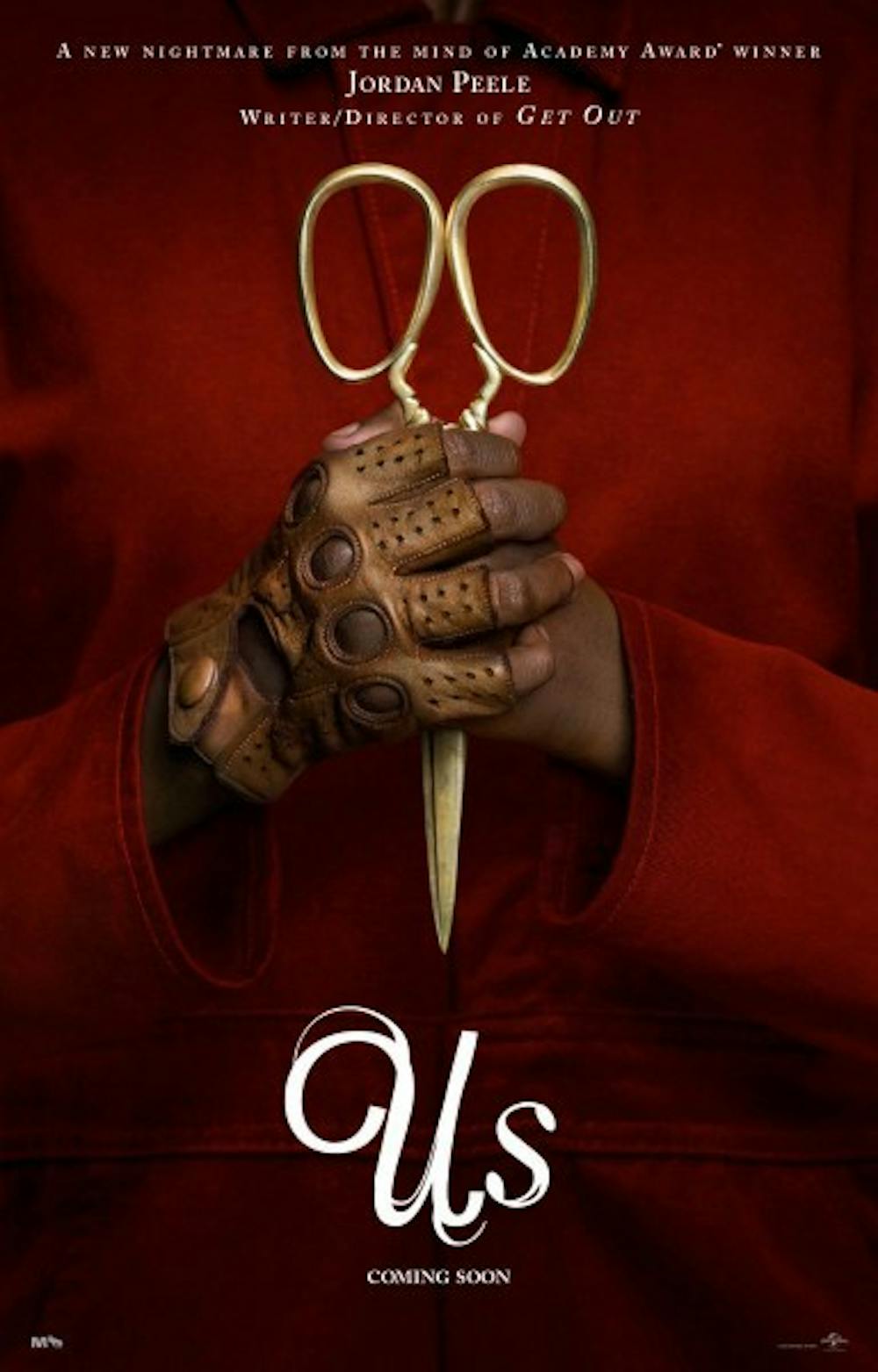It has now become an event whenever a new Jordan Peele movie is released. “Get Out” had resounding success, not only with its competent execution of thrills, but also its ability to incorporate social commentary, something Peele has perfected from his many years as a writer and producer on “Key and Peele.” His entertaining commentary on black and white relations within the U.S. was poignant and unflinching.
In “Us,” Peele continues his rise as one of America’s most talented filmmakers and social commentators. The film opens in 1986 at the Santa Clara fair, where we are introduced to a young Adelaide Thomas (played by Madison Curry). Adelaide is at the fair with her parents, before she wanders off and enters a dilapidated funhouse. From there we enter the mind of a director at the top of his game.
The story jumps to present day Santa Monica where the Wilsons are vacationing. An adult Adelaide (Lupita Nyong’o) and her wonderful suburban husband Gabriel (Winston Duke), navigate the tribulations of the detached upper middle class.
The Wilsons are invited to the beach by their friends, Josh (Tim Heidecker) and Kitty Tyler (Elisabeth Moss). Heidecker and Moss are clearly relishing playing a couple that relies on day drinking to keep their marriage afloat. It just so happens to be the same beach that Adelaide had her fateful night.
An encounter and a scare at the beach sets the stage for the night to come. A mysterious family stands at the end of the Wilson’s driveway before breaking in to reveal that they are doppelgangers of the Wilsons. From there it is mayhem at its purest.
“Us” displays Peele’s uncanny talent for tension. The movie has plenty of thrills, but all these thrills consciously lead to an eagerly anticipated climax. The predatory prowess of the Wilsons’ doppelgangers is chilling. Their actions are cold and calculated.
What makes the doppelgangers truly terrifying is the connection they share with the Wilsons. The connection allows them to anticipate every action that their respective Wilson will take. There is a dread that comes with the futility of the Wilsons’ actions.
Peele wrote, produced and directed the film, so it is only natural to expect a healthy dosage of comedy. He does not disappoint. Peele’s comedy is smart and self-aware. He understands that this is a horror film and uses his comedy sparingly, yet effectively. It allows the audience to catch their breath before diving back into the white-knuckle ride that "Us" is.
The joyfully creative chaos on display also affords space for the actors. Nyong’o is mesmeric. Her doppelganger, who we find out is named Red, is absolutely haunting. Red’s voice is something of true horror, it seemingly escapes through her mouth as something escapes a forgotten dungeon. It conveys years of anger and resentment that threatens to burst at any moment.
The two children, Zora (Shahadi Wright Wilson) and Jason (Evan Alex), are by no means overshadowed by Nyong’o and Duke. Zora delivers her humor and emotion with a rare stoicism. There is little differentiation between character and actress.
Her doppelganger is second only to Adelaide’s, she is patient and toys with Zora. Jason, and to an extent his doppelganger, offer an innocence that the other characters lack. Their actions are not calculated but strictly instinctual. It is difficult to anticipate what their course of action will be.
This is where we find the genius of this movie: it is undeniably original.
Get content from The Daily Lobo delivered to your inbox
The social commentary on display is far more ambitious than the racial tension in “Get Out.” Instead of focusing solely on race, Peele meditates on the insecurity and hollowness that accompanies wealth. The Wilsons’ sense of inferiority does not arise from their race, despite being the only black family on screen, but rather from their more affluent contemporaries.
Gabriel buys a boat (which comes to effective comic use later) because everyone else had one. The boat is in a sorry state, but symbolizes an inescapable desire to satisfy status through material means.
Peele seeks to criticize America’s obsession with status. There is an arrogance that affluence breeds. Gabriel initially dismisses the danger that the doppelgangers pose even when their house is overrun. Peele is an ambitious director, mirroring that, “Us” is an ambitious film.
Peele’s ambition is matched by his mastery of storytelling. “Us” defies genres but, can be categorized as a thriller. The characters demand the audience’s investment. They are relatable and resist the temptation to make questionable decisions that many other lesser films encourage their characters to do. The doppelgangers, especially Red, manage to evoke empathy. This is a film that refuses to be disposable and encourages a second viewing.
Justin Schatz is a freelance reporter and photographer for the Daily Lobo. He can be contacted by email at culture@dailylobo.com or on Twitter @JustinSchatz10.






